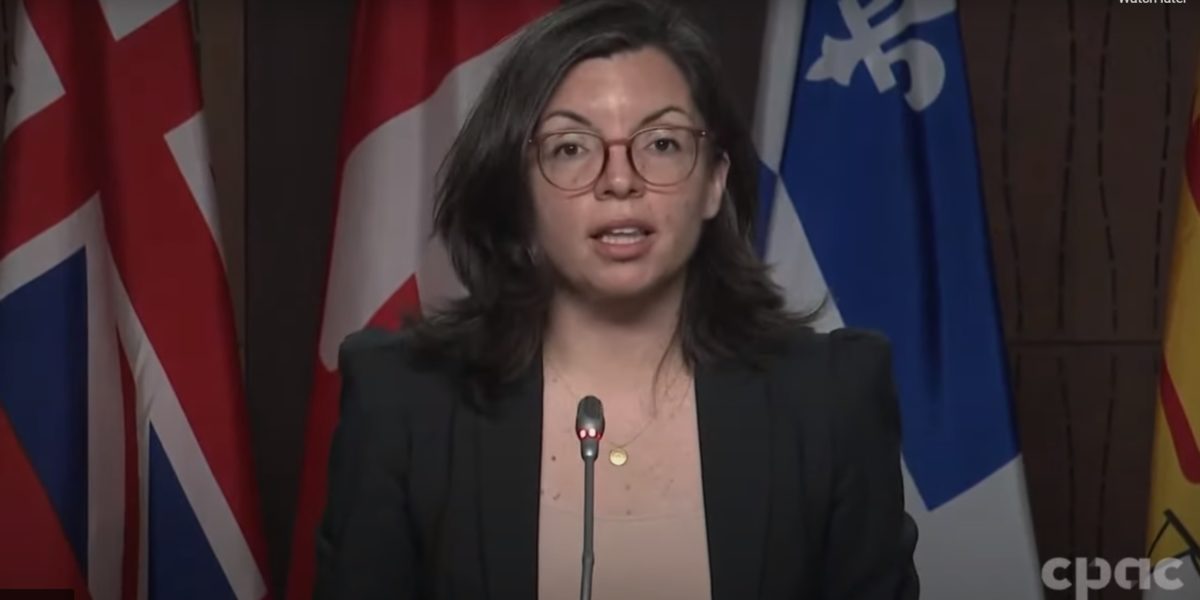As the federal government invests millions in directing the Canada Revenue Agency (CRA) to claw back ineligible Canada Emergency Response Benefit (CERB) payments from working class Canadians, the NDP is urging the Liberals to shift their focus to clamping down on tax avoidance by the ultra-wealthy.
That plan was unveiled on Wednesday in a press conference by NDP MP Niki Ashton (Churchill—Keewatinook Aski). Ashton was joined by Canadians for Tax Fairness (CTF) economist and lead researcher, DT Cochrane.
Ashton called on the Trudeau Liberals to follow through with promises of more tax fairness in the country by ending its current system that benefits the rich and penalizes the poor and reform the system in a way that makes the rich pay their fair share of taxes. More specifically, the NDP wants to see the Canada tax gap closed and any loopholes eliminated like the ones detailed in a recent New York Times feature that painted Canada as a hub for money laundering.
“While working people are struggling to make ends meet, it is unacceptable that the rich and powerful are being let off the hook,” Ashton told reporters. “If a major accounting firm can help the richest Canadians avoid paying their taxes and is then let off the hook, what does that tell us about this Liberal government’s priorities?”
She pointed out that in 2018 alone, the Parliamentary Budget Officer estimated that Canada lost up to $25 billion to tax evasion and avoidance by wealthy individuals and large corporations. That money, she suggested, could be going towards hospitals, housing, roads, and schools. Instead, it’s diverted out of the country, something the federal government could crack down on through stricter and clearer regulations.
“It is our job to make tax fairness our priority and to close loopholes that let the rich and powerful off the hook,” said Ashton. “It’s time for action. Liberals must change the law that lets the richest avoid paying their fair share. We also need greater scrutiny including a special committee focused on tax fairness. It’s time to make sure those at the top are paying their fair share.”
The 2022 budget called for the federal government to impose a temporary excess profits tax on banks and insurance companies that earn more than $1 billion annually. The 15 per cent tax would only be in effect for the 2022 tax year.
In their 2021 election campaign, the Liberals also promised to take action on closing tax loopholes to prevent banks from artificially lowering the taxes they pay in Canada.
“It’s time to put an end to [the Liberals’] billionaire friends ahead of working people in our country and it’s clear parliament must stand up for working people in this time of crisis,” she said.
As DT Cochrane explains on his website, there is a major difference between tax evasion and tax avoidance. Individuals and corporations that evade taxes deliberately hide or conceal income or assets, or make false claims about their finances to pay less in taxes. Tax avoidance is a bit more complicated.
“It occurs when the taxpayer does not provide false information to the CRA, but the provisions of the law are used in a manner that was not intended by Parliament,” Cochrane writes, explaining that the definition of tax avoidance leaves a large gray area that makes it difficult to hold taxpayers accountable.
In 2019, the Canada Revenue Agency (CRA) revealed the gross tax gap to be between $3.3 billion and $5.3 billion. However, those numbers don’t include funds resulting from ‘legal’ tax avoidance, nor does it estimate the tax gap from nonresident corporations operating in Canada.
That’s an optimistic estimate, though, as the Parliamentary Budget Officer noted that Canada loses up to a quarter of one trillion dollars in the course of a decade.
One year later, Cochrane’s CTF released a report showing that Canadian companies were keeping nearly $400 million in assets in offshore tax havens. The organization also found that large corporations have been relying on tax havens more and more over the years, up 135 per cent since 2009, and a staggering 634 per cent since 1999.
According to the Canadian Labour Congress (CLC), the country is a prime destination for tax evasion. That’s partly due to the relatively lax regulations around the registration of shell companies. As the CLC says, the name of the real owner is not even required to register.
“Not only are our most essential jobs – from education to food safety to health care – all reliant on sufficient and stable government revenue, but all Canadians depend on well-funded governments to deliver quality public services and to provide critical infrastructure,” a 2021 CLC statement reads.



